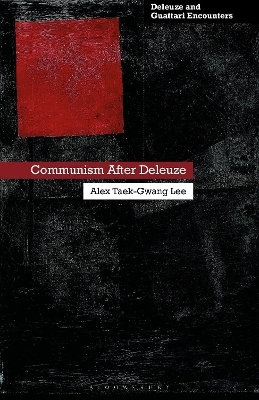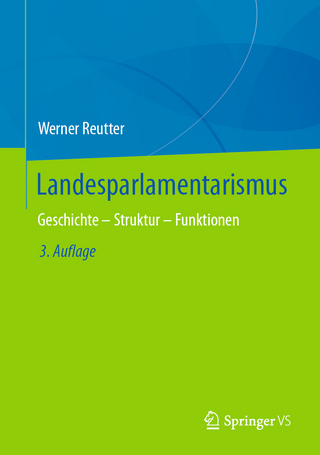
Communism After Deleuze
Seiten
2025
Bloomsbury Academic (Verlag)
978-1-350-47403-1 (ISBN)
Bloomsbury Academic (Verlag)
978-1-350-47403-1 (ISBN)
- Noch nicht erschienen (ca. Februar 2025)
- Versandkostenfrei
- Auch auf Rechnung
- Artikel merken
This new reading of Gilles Deleuze forges a link between his early and later works by decoding his hidden agenda for communism. Encoded in the idea of ‘the Third World’, Deleuze used his concept of communism as a bulwark against fascist politics and the liberal political economy. Inspired by May 68 and its aftermath, these concealed interpretations of Marx are now tacitly forgotten but can unlock a deeper understanding of Deleuze’s political project.
Often regarded as an apolitical philosopher, the challenges that Deleuze mounted to structuralism are easy to overlook. By reinvigorating the communist aspect of his political project and linking his ideas to Alain Badiou, Jacques Rancière and Slavoj Žižek, Alex Taek-Gwang Lee reveals Deleuze’s objective: to rescue Marxism from the dogmatic status quo and revive its political agendas. This major undertaking situates his ideas alongside and sets out a new framework for reading the significance of Marxist thought in postwar France. Ultimately, this new understanding of Deleuze’s critique of global capitalism opens up his vision of materialistic politics as a means of shaping the people and the proletariat of the future.
Often regarded as an apolitical philosopher, the challenges that Deleuze mounted to structuralism are easy to overlook. By reinvigorating the communist aspect of his political project and linking his ideas to Alain Badiou, Jacques Rancière and Slavoj Žižek, Alex Taek-Gwang Lee reveals Deleuze’s objective: to rescue Marxism from the dogmatic status quo and revive its political agendas. This major undertaking situates his ideas alongside and sets out a new framework for reading the significance of Marxist thought in postwar France. Ultimately, this new understanding of Deleuze’s critique of global capitalism opens up his vision of materialistic politics as a means of shaping the people and the proletariat of the future.
Alex Taek-Gwang Lee is a professor of cultural studies at the School of Global Communication and a founding director of the Center for Technology in Humanities at Kyung Hee University, Korea.
1. Introduction: Deleuze and Minor Communism
2. Deleuze and Structuralism
3. From Anti-Oedipus to A Thousand Plateaus
4. Faciality, Ritournelle, and the Urstaat
5. Deleuze’s unwritten Marx
6. Conclusion: How Do We Recognise Deleuze’s Communism?
| Erscheint lt. Verlag | 6.2.2025 |
|---|---|
| Reihe/Serie | Deleuze and Guattari Encounters |
| Verlagsort | London |
| Sprache | englisch |
| Maße | 138 x 216 mm |
| Themenwelt | Geisteswissenschaften ► Philosophie |
| Sozialwissenschaften ► Politik / Verwaltung ► Politische Systeme | |
| Sozialwissenschaften ► Politik / Verwaltung ► Politische Theorie | |
| ISBN-10 | 1-350-47403-7 / 1350474037 |
| ISBN-13 | 978-1-350-47403-1 / 9781350474031 |
| Zustand | Neuware |
| Haben Sie eine Frage zum Produkt? |
Mehr entdecken
aus dem Bereich
aus dem Bereich
über Alltagsorte des sozialen Zusammenhalts
Buch | Softcover (2024)
transcript (Verlag)
CHF 33,55
Geschichte - Struktur - Funktionen
Buch | Hardcover (2024)
Springer (Verlag)
CHF 195,95


